Image: A resident plays in front of rabbit sculptures in Beijing.
Photographs: Jason Lee/Reuters.
Photographs: Jason Lee/Reuters.
The world's most populous country, China, has also grown to become an economic superpower. The GDP of China, which became the world's second largest economy surpassing Japan in 2010, was estimated at $4.98 trillion in the second quarter of 2010.
China could become the world's largest economy (by nominal GDP) by 2020.
Click NEXT to read amazing facts about the Chinese economy...What the world envies about China
Image: Chinese employees of China National Petroleum Corp work at Tarim Oil Field.Photographs: Reuters.
A total of 54 Chinese companies are in the Fortune Global 500 companies list. Three Chinese companies - Sinopec, State Grid and China National Petroleum - are among the top 10.
What the world envies about China
Image: Beijing International Airport.
China plans to build a second airport in Beijing which is expected to handle 60 million passengers a year, at a cost of whopping $15 billion. This is among the 11 new airports that China plans to build in 2011. About 55 billion yuan will be invested in airport construction and expansion this year. China has 175 airports for civil aviation.
What the world envies about China
Image: South China Mall.
The world's biggest mall is in China. However, 95 per cent of the South China Mall is vacant, says a Businessinsider report.
What the world envies about China
Image: A doll made in China.
China is the world's largest toy manufacturer and exporter. China exported toys worth $7.8 billion in 2009.
What the world envies about China
Image: High-speed passenger train in China.Photographs: Reuters.
When it comes to train travel, China beats America! The fastest train in America travels less than half as fast as the new train between Shanghai and Beijing, says Businessinsider. On December 3, 2010 a high-speed passenger train manufactured by CSR Corporation hit a record speed of 486.1 km/hour on a test run on the Beijing-Shanghai line.
What the world envies about China
Image: A Shanghai Airlines' passenger airliner flies towards Hongqiao Airport in Shanghai.Photographs: Aly Song/Reuters.
China will add 290 new planes this year. The fleet is expected to expand to 1,827 planes, up from 1,604 at the end of 2010, according to the CAAC statistics. The CAAC estimated that the air transport industry will ship 300 million passengers and 6.2 million tons of cargo this year. Last year, 267 million passengers travelled by air, up 16 per cent from 2009, and 5.57 million tons of cargo were transported by air, up 25 per cent year-on-year. The industry earned a profit of 43.7 billion yuan in 2010, three times that of 2009.
What the world envies about China
Image: Mobile phone users rise.
The number of mobile phone subscribers in China touched 850 million last year. China saw a record addition of 100 million users in 2010.
What the world envies about China
Image: Shanghai.
China has grown vertically too, building huge residential complexes. Around 64 million vacant homes are there in China, says a Businessinsider report.
What the world envies about China
Image: Chinese women learn baby sitting skills.Photographs: Reuters.
China's urban population is expected to swell up to a billion by 2025, and the country will have as many as 221 mega cities, 10 of them with over 10 million population each.
What the world envies about China
Image: Employees at a shipbuilding factory in Wuwei, Anhui Province, China.Photographs: Jianan Yu/Reuters.
China has emerged as the world's leading shipbuilding nation ahead of Sout Korea. According to London-based market researcher, Clarkson Research, Chinese shipbuilders clinched a total of $15.9 million compensated gross tons (CGTs) as new orders.
What the world envies about China
Image: Paper invented in China.
Some of the important inventions were made in China. The earliest version of the compass was invented in China in 1044. Paper and gunpowder are also Chinese inventions.
What the world envies about China
Image: Chinese currency.
China is the world's third in industrial output. Industry and construction account for 46.8 per cent of China's GDP. Around 8 per cent of the total manufacturing output in the world comes from China.
What the world envies about China
Image: Steel.
China is the largest producer of steel in the world. The steel industry in China has been rapidly increasing its steel production.
What the world envies about China
Image: A hybrid car in China.
China beacme the world's third largest automotive vehicle manufacturer (after US and Japan) by 2006. China's automobile market will triple to 40 million accounting for half of world production by 2020.
What the world envies about China
Image: Investors check their stocks value at a stock exchange market in Shanghai.Photographs: Nir Elias/Reuters.
Eight of Shanghai's top ten stocks are owned by the government.
What the world envies about China
Image: Hangzhou Bay Bridge.
The world's longest trans-oceanic bridge extends across the Hangzhou Bay to over 35.673 kilometres (22 miles). this modern wonder is an S-shaped stayed-cable bridge with six lanes in both directions. It brings down the distance between Shanghai and Ningbo by 120 km. This architectural wonder cost a whopping 11.8 billion yuan ($1.70 billion).
What the world envies about China
Image: A man uses a computer at an internet cafe in Beijing.Photographs: Jason Lee/Reuters.
Chinese youth are the highest mobile internet users. Around 73 per cent of Chinese mobile users aged 15-24 said they used mobile internet in the last 30 days compared to only 48 percent of US youth and 46 percent of youth in the UK.
What the world envies about China
Image: Beijing Olympics stadium.
The 2008 Olympics Games in Beijing were the most expensive games in history. The Beijing Games cost a whopping $40 billion.

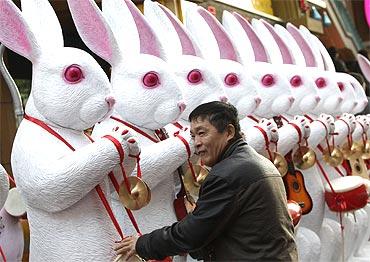
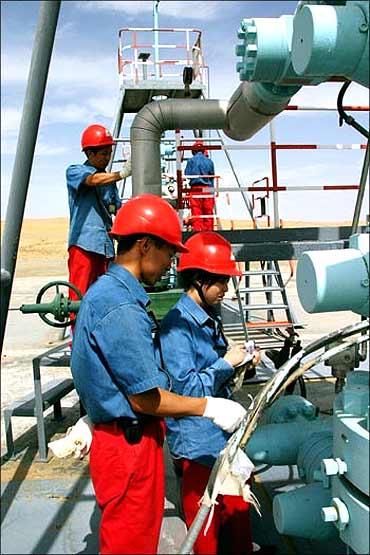
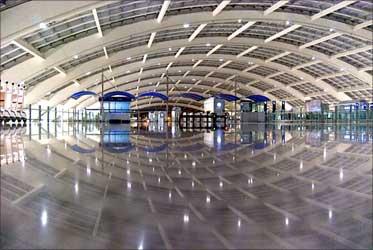
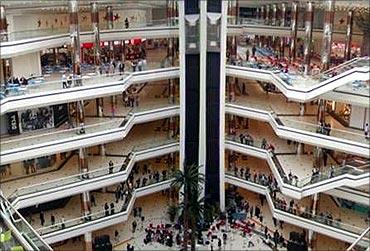

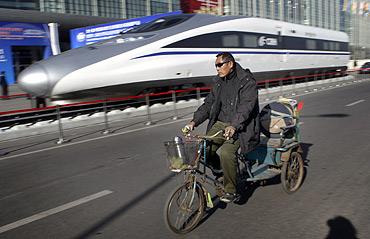
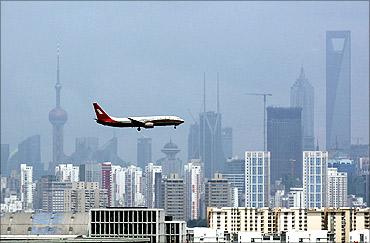

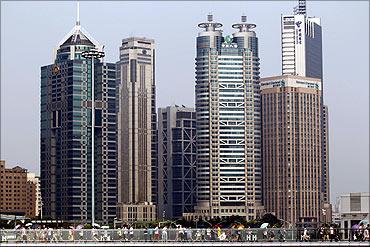
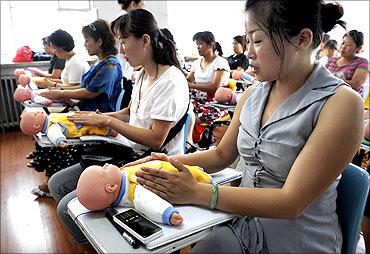
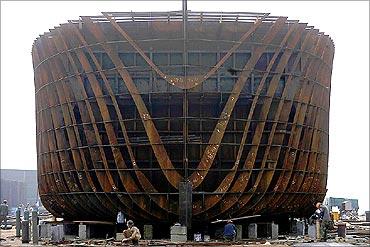

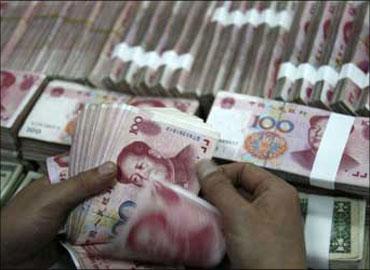
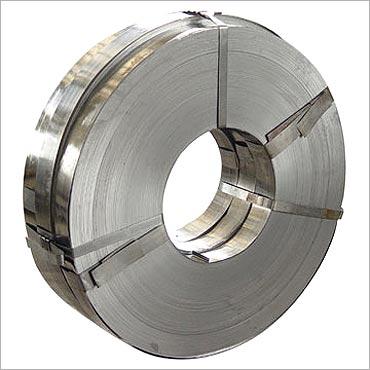
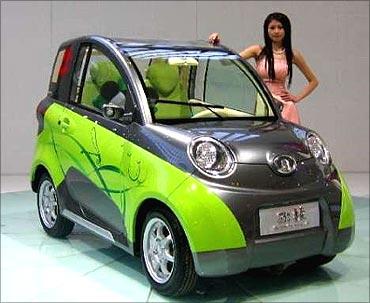
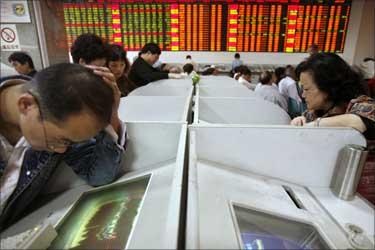
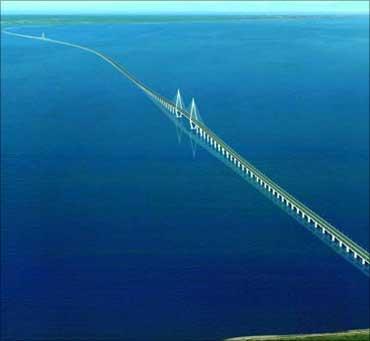
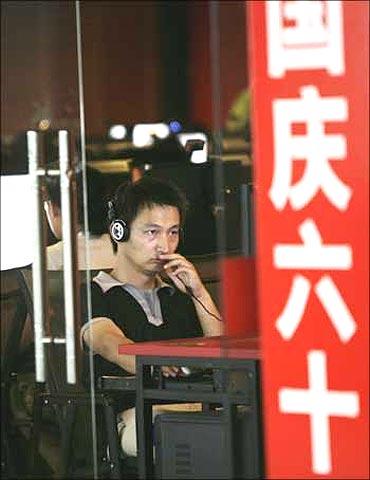
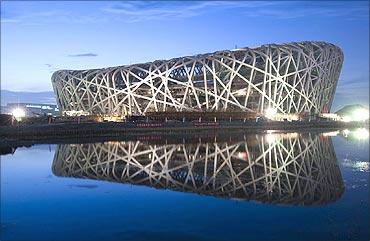
article